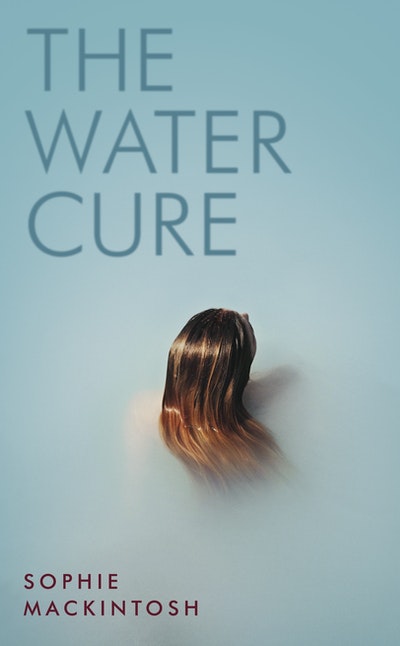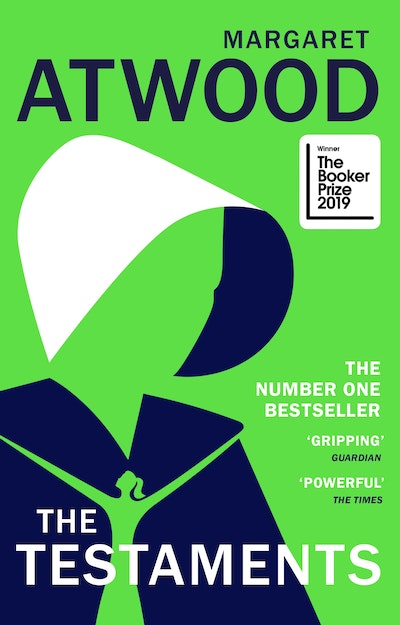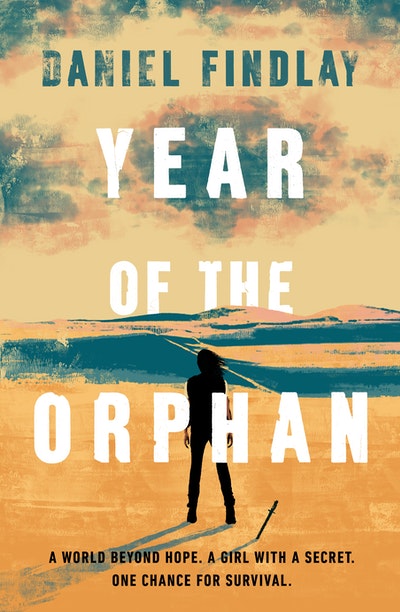- Published: 7 May 2019
- ISBN: 9780241983010
- Imprint: Penguin General UK
- Format: Paperback
- Pages: 256
- RRP: $28.00
The Water Cure
LONGLISTED FOR THE MAN BOOKER PRIZE 2018
Extract
I
Father
Grace, Lia, Sky
Once we have a father, but our father dies without us noticing.
It’s wrong to say that we don’t notice. We are just absorbed in ourselves, that afternoon when he dies. Unseasonable heat. We squabble, as usual. Mother comes out on the terrace and puts a stop to it by raising her hand, a swift motion against the sky. Then we spend some time lying down with lengths of muslin over our faces, trying not to scream, and so he dies with none of us women bearing witness, none of us accompanying him.
It is possible we drove him away, that the energy escaped our bodies despite our attempts to stifle it and became a smog clinging around the house, the forest, the beach. That was where we last saw him. He put a towel on the ground and lay down parallel to the sea, flat on the sand. He was resting, letting sweat gather along his top lip, his bare head.
The interrogation begins at dinner when he fails to turn up. Mother pushes the food and plates from the table in her agitation, one sweep of the arm, and we search the endless rooms of the house. He is not in the kitchen, soaking fish in a tub of brine, or pulling up withered potatoes outside, inspecting the soil. He is not on the terrace at the top of the house, surveying the still surface of the pool three floors below, and he is certainly not in the pool itself, for the sound of his splashing is always violent enough to carry. He is not in the lounge, nor the ballroom, the piano untouched, the velvet curtains heavy with undisturbed dust. Moving up the staircase again, a spine through the centre of the house, we check our rooms individually, our bathrooms, though we know he will not be there. From our scattered formation we come together to search the garden, search deeper, sticking long branches into the pond’s green murk. Eventually we are out on the beach and we realize one of the boats has gone too – a furrow in the sand where it has been pushed out.
For a moment we think he has gone for supplies, but then we remember he was not wearing the protective white suit, we did not do the leaving ceremony, and we look towards the rounded glow of the horizon, the air peach-ripe with toxicity. And Mother falls to her knees.
Our father had a big and difficult body. When he sat down, his swimming shorts rode up and exposed the whiteness of his thigh where it was usually covered. If you killed him, it would be like pushing over a sack of meat. It would require someone much stronger than us.
The father shape he leaves behind quickly becomes a hollow that we can put our grief into, which is an improvement in a way.
Grace
I ask Mother if she had noticed any sickness in you. Any hint of your body giving way. She says, ‘No, your father was in fine fettle.’ Dark turn. ‘As you well fucking know.’
Your body was not completely all right. Of course I would see that where she would not. I noticed a slight cough, mixed up a honey tincture for you the day before you died. Boiled nettles from the end of the garden, where we dump our rubbish and leave things to rot. My hands blistering as I pulled them from the earth in flat afternoon heat. You drank it straight from the saucepan. Sunburnt throat moving under the metal. We were sitting in the kitchen together, two stools pushed close. Your eyes were watery. You did not touch me. On the counter, three sardines spilled their guts.
‘Are you dying?’ I asked you.
‘No,’ you said. ‘In many ways, I have never been better.’
Lia
Confirmation comes in the shape of his bloodstained shoe washed up high on the shore. Mother finds it, but we don’t salt it or burn it the way we would with other dangerous waste. ‘This is your father!’ she screams at me when I suggest it. So instead we pull on latex gloves and we all touch the blood patch on the shoe, and then we bury it in the forest. We fling the gloves into the shoe’s open grave and Mother fills it in with a shovel. I cry on to Grace’s shoulder until the flesh of it shows through the material of her dress, but she only stares into the canopy above us with dry eyes.
‘Can you feel something, for once?’ I whisper to her later in the dark, sharing her bed without asking permission.
‘I hope you die in the night,’ she whispers back.
Often Grace is repelled by me. I don’t have the luxury of being repelled by her, even when her breath is sour and a gentle scum of dirt clings to her ankles. I take whatever contact I can get. Sometimes I harvest the hair from her brush and hide it under my pillow, when things get very bad.
Grace has a deep fascination with a pair of black patent sandals that one of the women left behind years ago. She straps them on from time to time even though the soles flap loose, the leather scales and flakes. One morning she puts them on and lies face down in the sweating dew, right in the middle of the garden. When Sky and I find her, roll her over with our hands, she is motionless for thirty seconds or more. Her eyes are fixed. Her first movement is to rend at her hair, and we join in like it’s a game, but it turns out it’s a cue that I didn’t even know I was waiting for. Then we are all just useless there on the lawn, already painfully overgrown, waiting for Mother to find us.
Because we are new to mourning, Mother is panicked. There are no therapies for this unknown crisis. But she is a resourceful woman, ardently repairing the broken her entire life. More than that, she was a woman at our father’s side, absorbing and refining his theories. Her hands are bloodless when she lays them upon us. Soon a solution is found.
For one week, Sky and I share Grace’s bed. For one week, Mother puts the small blue insomnia tablets on our tongues three to four times a day. Short and foggy breaks in the sleep to be slapped awake, to drink from the glasses of water that crowd the bedside table and to eat crackers Mother spreads with peanut butter, to crawl to the bathroom, because by the third day our legs can no longer be relied upon to hold us. The heavy curtains stay closed to keep the light out, to keep the temperature down.
‘What are you feeling?’ Mother asks us during those swims up to consciousness. ‘Good, bad? Oh, I know that I wish I could sleep through all of this. You are the lucky ones.’
She monitors our breathing, our pulses. Sky throws up and Mother is there immediately to tenderly scoop the vomit from her mouth with her forefinger and thumb. When she puts her into the bathtub to clean her up we are dimly aware of the shower running like a distant storm.
All through the long sleep my dreams are boxes filled with boxes filled with small trapdoors. I keep thinking I am awake, and then my arms fall off or the sky pulses a livid green, I am outside with my fingers in the sand and the sea is vertical, spilling its seams. After, it takes a few days for my body to feel normal again. My knees still crumple when I stand. I have bitten my tongue, and it swells and moves in my mouth like a grub against dry earth.
Grace, Lia, Sky
When we emerge from the lost week, we are surrounded by pieces of paper with Mother’s writing on like reminders. They are pinned to the walls, slipped into drawers, folded into our clothes. The pieces of paper say, No more love! Her pain gives her the gravity of an oracle. We are very troubled by them. We ask her about them and she tells us a revised version.
‘Love only your sisters!’ All right, we decide, that is easy enough for us to do. ‘And your mother,’ she adds. ‘You have to love me too. It’s my right.’ OK, we tell her. It is no problem.
Grace
Sometimes we pray in the ballroom, sometimes in Mother’s bedroom. It depends on whether we need bombast, Mother on the stage with her arms raised towards the ceiling, sound bouncing from the parquet. In her bedroom it is a quieter worship, graver. We hold hands very tightly, so we can blur where the I ends and the sister begins. ‘Devotions for the women of our blood,’ we say.
It feels good to wish my sisters only well. I can feel them focusing on our love like a crucial piece of information that needs memorizing. ‘Sometimes,’ Mother tells us, when she is trying to be loving, ‘I can no longer tell you girls apart.’ Some days we like this, some days we don’t.
The first time we gather to pray in Mother’s room after your death, I broach the idea of drawing the irons again. When I say it nobody nods, nobody agrees with me. Our eyes go to where they hang on her wall. Five hooks, five lengths of iron. Five names above the hooks, but only four names on the irons.
‘Once a year, Grace,’ Mother tells me. ‘Just because you don’t like the result.’
Lia looks sideways at me. She was the one who drew the blank iron, which meant that there was no specific love allocated to her this year. ‘Bad luck,’ we told her. She was stoic. All of us put our arms around her and told her that of course we would still love her, of course, but we knew it wouldn’t be the same, that she would have to scramble more for the affection, that it wouldn’t come as easily. We wouldn’t be able to touch her so freely. You picked me, as usual, tying me to you for another year. You rigged it. The whole thing was a sham.
‘My person is dead,’ I point out.
‘Grief is love,’ Mother says. I expect her to be angry, but she looks panicked instead. ‘You could call it the purest kind.’
So much for loving only my sisters.
It occurs to me that I would like you to come back to life so I could kill you myself.
‘We always love some people more,’ Mother explained when we first drew them. ‘This way, we can keep it fair. Everyone gets their turn.’ It seemed simple, with those irons new in our hands and our names painted fresh upon them. Lia got me, that time.
We would all still love each other, but what it meant was: if there was a burning fire, if two sisters were stuck in the inferno and they were screaming a name, the only right thing would be to pick the one the iron dictated to save. It is important to ignore any contrary instinct of your traitor heart. We were quite used to that.
Lia
One month after we lose our father, King, I am standing at the edge of the swimming pool, in the lavender light that comes up where the border hits the sky. Our pool is the sea made safe, salt water filtered through unseen pipes and sluices, blue and white tiles surrounding it and a marble counter where drinks were once served. Thick rivets of salt are laid down on the tiles immediately bordering the water, guarding against toxins brought in on the wind. King explained to us that the salt drew out badness like damp, his hands quick and busy as he scattered it, tanned a deep, dry brown.
I am wearing a white cotton dress, fishing weights sewn into the hem, the sleeves, the neckline, where their coldness presses against my collarbone. I have not worn it since King died. On the pastel-striped recliner behind me, my belongings: towel and water, sunglasses, an enamel cup of cold coffee. Taking a deep breath, I release myself into the water.
Grace and I are the only ones who play the drowning game. Sky is more than old enough now, but Mother kicked up a fuss when King suggested that she start – the baby, the favourite – and Mother herself has always been exempt. She has suffered enough already. There is little we can do to save her body now, beyond the palliative. When we were younger she made a point of watching us from one of the recliners, a tall glass of water in her hand, her favourite blue linen dress hitched up to mid-thigh.
Grace and I could go together when we first started. King held us both under the water with ease. He only invented the drowning dress later, when we became bigger, our limbs harder to manipulate. My sister was small for her age, and when I was twelve and she fourteen we overlapped, a year of being exactly the same size, before I overtook her. I remember this as the golden year, the year of my double. We wore identical swimming costumes that Mother had sewn by hand, red with a bow at the left shoulder. Our lungs started to develop the capacity of grown women, so that we could hold a note for a long, long time. We could blow our emergency whistles for what felt like whole minutes.
My feelings are limping, wretched things. Underwater, staring at the stained tiles, I scream as loudly as I can. The water kills the sound. Opening my eyes, I turn on to my back and watch the sun through the water, a rippling orb of light. It is at times like these that I can imagine holding myself down until the water floods my lungs, that I realize it wouldn’t even be so hard. The real trick is how and why we continue surviving at all.
My chest starts to hurt, but I stay under until the static creeps at my vision, and then I claw to the surface. I stagger out of the water, fall on the recliner and wait as the feeling subsides. A deep gratitude floods my heart.
Part of what made the old world so terrible, so prone to destruction, was a total lack of preparation for the personal energies often called feelings. Mother told us about these kinds of energies. Especially dangerous for women, our bodies already so vulnerable in ways that the bodies of men are not. It was a wonder that there were still safe places, islands like ours where women can be healthful and whole.
‘We’ve cracked it,’ King told us in the first days of the drowning game. Inventing a new therapy always put him in an expansive, joyful mood. He whirled Mother around in his arms, her shoulder blades tight against his hands, feet off the floor. Day of happiness! We ate a whole packet of chocolate wafers to celebrate, only slightly stale, dipped in goat’s milk.
The air did become lighter; small seabirds came to our home, hovered around the garden, the pool, and sang to each other. Yet beyond the forest, beyond the horizon, the toxin-filled world was still there. It was biding its time.
The Water Cure Sophie Mackintosh
A dreamlike and compulsive feminist dystopia for the #metoo generation
Buy now











